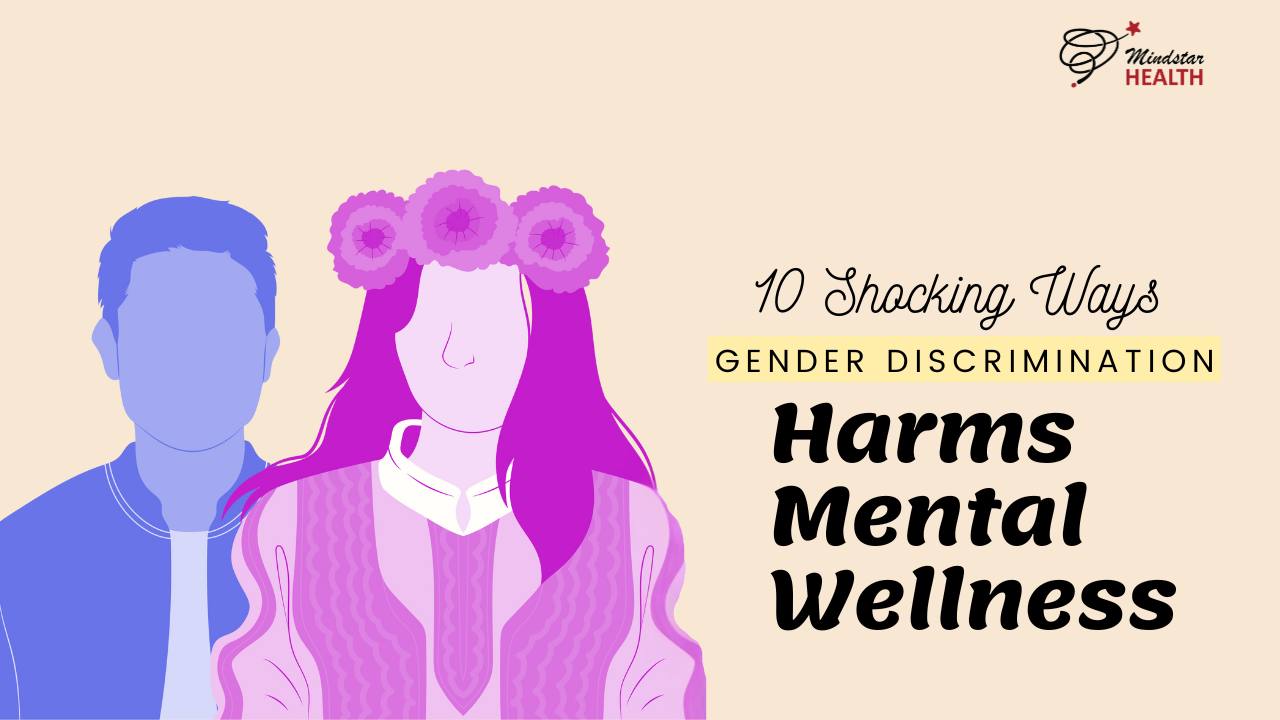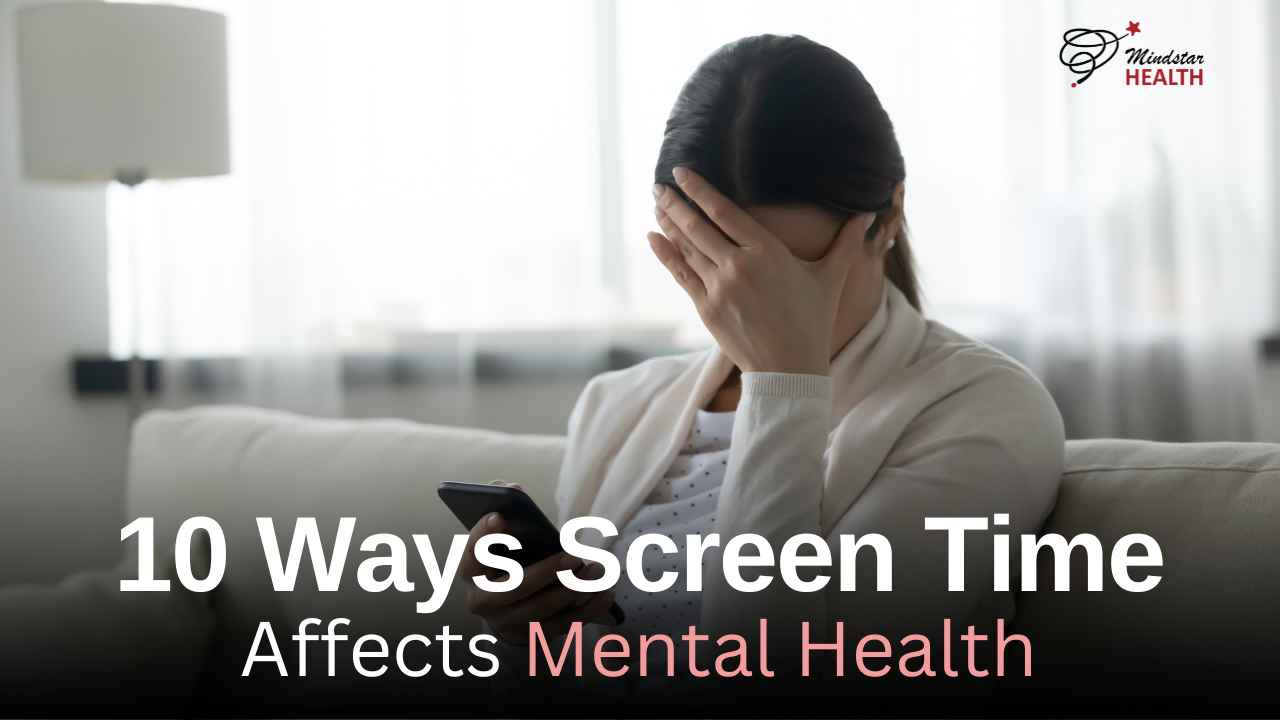As winter approaches and the days get shorter, many of us find ourselves feeling a bit down, sluggish, or even experiencing more serious symptoms of depression. Interestingly, the cause may not be solely the gloomy weather or holiday stress, but a common Vitamin D deficiency. Known as the “sunshine vitamin,” Vitamin D plays a vital role in our mental health, particularly during the winter months when sunlight exposure is limited. This article explores the potential link between vitamin deficiency and winter depression, and how addressing this deficiency could help improve mental wellness.
Understanding Vitamin D and Mental Health:
What is Vitamin D and Why is it Important?
Vitamin D is essential for numerous bodily functions, including bone health, immune function, and mental health. Our body naturally produces Vitamin D when exposed to sunlight, but during the colder months, reduced sunlight and longer nights can lead to low Vitamin D levels. This deficiency has been linked to a range of mood disorders, including depression.
Link Between Vitamin D Deficiency and Winter Depression:
Seasonal Affective Disorder (SAD), often referred to as winter depression, occurs in some individuals when there is a lack of sunlight during the winter months. People with Vitamin D deficiency may be more susceptible to SAD, as low Vitamin D levels are believed to affect the production of serotonin, a neurotransmitter that helps regulate mood. In fact, research has shown that individuals with depression tend to have lower levels of Vitamin D in their blood.
A 2018 study found that over 60% of people with depression also suffered from Vitamin D deficiency. The findings suggested that increasing Vitamin D intake could have a positive effect on mood and mental well-being.
Symptoms of Vitamin D Deficiency and Depression:
Signs of Vitamin D Deficiency:
- Fatigue and drowsiness: Feeling unusually tired or lethargic despite adequate sleep.
- Aching bones and muscles: Vitamin D plays a key role in muscle and bone health.
- Weak immune system: A lack of Vitamin D can impair immune function, leading to frequent illnesses.
Common Depression Symptoms:
- Persistent sadness or feelings of hopelessness.
- Loss of interest in activities once enjoyed.
- Weight fluctuations: Significant weight loss or gain without a clear reason.
5 Signs Winter Depression May Be Linked to Vitamin D Deficiency
As the days get shorter and the temperatures drop, it’s easy to feel the weight of winter depression. Many of us experience a drop in energy levels, feeling of sadness, or even a loss of interest in our daily activities as winter sets in. But could there be a physical cause behind these symptoms? One potential contributor to winter depression is Vitamin D deficiency. In this article, we’ll explore five signs that may indicate your mental wellness is being affected by a lack of this crucial nutrient, and how you can take action to support your mental health.
1. Increased Feelings of Sadness and Hopelessness
Link Between Vitamin D and Depression
One of the hallmark symptoms of winter depression is an overwhelming sense of sadness or hopelessness. For many, these feelings are linked to the lack of sunlight during winter months. What’s less known, however, is that Vitamin D deficiency can amplify these emotions.
Studies have shown that people with low levels of Vitamin D are more likely to experience depression. A 2018 study found that approximately 60% of individuals with depression also had insufficient Vitamin D levels. As serotonin production decreases with low Vitamin D, feelings of sadness and hopelessness can intensify.
Understanding the Impact on Mental Wellness
When we lack Vitamin D, we may feel disconnected from the world around us, withdrawing from our social activities and hobbies. This can cause us to spiral deeper into negative thoughts, making it harder to stay positive or motivated.
2. Lack of Energy and Increased Fatigue
Fatigue as a Sign of Vitamin D Deficiency
Do you feel constantly tired or fatigued during the winter months, no matter how much sleep you get? This could be a sign that Vitamin D deficiency is impacting your mental health. When your Vitamin D levels are low, your body may struggle to maintain optimal energy levels. This is because Vitamin D plays a role in regulating your body’s energy production, and low levels can lead to chronic fatigue.
A study published in the “Journal of Clinical Sleep Medicine” found that individuals with Vitamin D deficiency are more likely to report feeling excessively tired or fatigued during the day. Furthermore, winter depression often causes an increase in sleep disturbances, which further exacerbates feelings of tiredness.
Impact on Mental Wellness
This lack of energy can make even simple tasks feel overwhelming. Whether it’s going to work, maintaining social relationships, or engaging in physical activity, the fatigue associated with Vitamin D deficiency can disrupt your daily life and contribute to a negative spiral in your mental wellness.
3. Difficulty Sleeping and Disrupted Sleep Patterns
Vitamin D and Sleep Disturbances
A good night’s sleep is crucial for maintaining mental wellness, yet many people experience sleep disturbances during the winter months. This can be particularly troublesome for individuals struggling with winter depression. Research indicates that Vitamin D deficiency may contribute to poor sleep patterns.
A 2014 study published in “Sleep Medicine Reviews” found that Vitamin D deficiency was associated with increased levels of sleep disturbances, including difficulty falling asleep, waking up in the middle of the night, and feeling unrefreshed upon waking. This is significant because poor sleep is both a symptom and a contributing factor to winter depression.
Impact on Mental Health
Sleep is essential for mood regulation, memory consolidation, and overall well-being. When Vitamin D deficiency leads to poor sleep, it may exacerbate the feelings of sadness, fatigue, and irritability commonly associated with winter depression. Additionally, sleep disturbances can make it harder for your body to heal and rejuvenate, further damaging your mental wellness.
4. Loss of Interest in Daily Activities
Reduced Motivation Due to Vitamin D Deficiency
Another sign of winter depression linked to Vitamin D deficiency is the loss of interest in activities that you normally enjoy. If you find yourself withdrawing from hobbies, social events, or even basic responsibilities, it could be a result of low Vitamin D levels. Vitamin D is involved in the production of dopamine, a neurotransmitter that plays a key role in reward and motivation. When Vitamin D levels are low, dopamine production decreases, which can lead to an overall lack of interest and pleasure in life.
Mental Wellness and Social Isolation
Social withdrawal is one of the key symptoms of winter depression, and it often worsens with Vitamin D deficiency. People with low Vitamin D levels tend to feel disconnected from others, which can increase feelings of isolation and sadness. This can be especially troubling in the winter months when social interactions are already reduced, making it harder to stay engaged and motivated.
5. Body Aches and Muscle Weakness
Physical Symptoms of Vitamin D Deficiency
Vitamin D deficiency can also manifest in physical symptoms such as muscle weakness and body aches. These symptoms may not seem directly related to winter depression, but they can contribute to feelings of lethargy and frustration. The muscles and bones rely on Vitamin D for proper function, and when levels drop, they may become weaker, causing pain and discomfort.
A 2017 study published in the “American Journal of Clinical Nutrition” showed that individuals with low Vitamin D levels were more likely to experience musculoskeletal pain, including aches in the back, legs, and joints. These physical symptoms can exacerbate the mental health challenges that come with winter depression, making it even more difficult to remain active or engaged in daily life.
Impact on Mental Wellness
When we experience body aches and muscle weakness, it can be challenging to stay active and engaged. Lack of movement can worsen depression symptoms, as physical activity is known to help release endorphins—natural mood boosters. This creates a vicious cycle, where physical discomfort leads to decreased activity, which in turn worsens mental wellness.
How Vitamin D Affects Mood:
Vitamin D plays a crucial role in regulating mood and emotional well-being. One of the key ways it impacts mental health is through its effect on serotonin production. Serotonin is a neurotransmitter that helps regulate mood, emotions, and behaviors. It is often referred to as the “feel-good” chemical because of its ability to promote feelings of happiness and calm. Research suggests that Vitamin D deficiency can decrease serotonin production, which may lead to mood disorders such as depression, especially during the darker winter months when sunlight exposure is limited.
A 2014 study published in the “Journal of Affective Disorders” found a significant correlation between low Vitamin D levels and depressive symptoms. This study highlighted that individuals with low Vitamin D often reported increased feelings of sadness and a lack of motivation—common characteristics of winter depression. The connection between serotonin and Vitamin D underscores the importance of maintaining adequate levels of this nutrient for mental wellness.
The Role of Sunlight in Vitamin D Production:
Sunlight exposure is the most natural and efficient way to boost Vitamin D levels. The skin synthesizes this vitamin when exposed to UVB rays from the sun. However, many people struggle to get enough sunlight during the colder months, particularly those living in northern latitudes. During the winter, days are shorter, and the sun’s rays are less direct, which significantly limits the body’s ability to produce Vitamin D.
Research has shown that people living farther from the equator, where sunlight is scarce in winter, are at a higher risk for Vitamin D deficiency. A study published in the “American Journal of Clinical Nutrition” revealed that individuals living in regions with long winters had significantly lower Vitamin D levels compared to those in sunnier climates. This deficiency can contribute to winter depression, as the lack of sunlight not only limits Vitamin D production but also disrupts circadian rhythms, further affecting mental health.
Maintaining adequate Vitamin D levels is essential for mental wellness, especially in areas with long winters or limited sunlight.
Risk Factors for Vitamin D Deficiency:
- Limited Sun Exposure: People living in northern climates or those who spend most of their time indoors may not get enough sunlight.
- Diet: Foods like fatty fish, fortified dairy products, and mushrooms are good sources of Vitamin D, but many people do not consume enough of these foods.
- Age and Skin Tone: Older adults and those with darker skin may be more prone to Vitamin D deficiency due to reduced skin production of Vitamin D.
How to Combat Vitamin D Deficiency and Improve Winter Depression Symptoms
During the winter months, many people experience winter depression, also known as Seasonal Affective Disorder (SAD). This condition is often linked to a lack of sunlight, which can lead to Vitamin D deficiency. Vitamin D plays a crucial role in mental wellness, and a deficiency in this nutrient can worsen symptoms of mental health conditions, including depression. In this article, we will discuss practical strategies to combat Vitamin D deficiency and support your overall mental health during the winter months.
1. Increase Sun Exposure
One of the most effective ways to combat Vitamin D deficiency is through sunlight exposure. Even though sunlight may be scarce during the colder months, it’s still important to spend time outdoors during midday when the sun is at its peak.
How Sun Exposure Helps
- Sunlight and Vitamin D Production: Our bodies produce Vitamin D when exposed to UV rays from the sun. A brief exposure of 10-30 minutes daily can help ensure sufficient Vitamin D production. The length of time needed depends on factors such as skin type, geographical location, and time of day.
- Timing: Aim to spend time outside during midday when the sun is at its highest point, typically between 11 a.m. and 3 p.m. Even on cloudy or chilly days, you can still receive some benefits from the sunlight.
Why It Matters
Studies show that Vitamin D is critical for regulating mood and energy levels. A deficiency in this vitamin can contribute to feelings of sadness, lethargy, and other symptoms of winter depression. By increasing your exposure to sunlight, you help your body maintain proper Vitamin D levels, which may alleviate these depressive symptoms.
2. Incorporate Vitamin D-Rich Foods into Your Diet
When it’s difficult to get enough sunlight, especially in the winter months, eating Vitamin D-rich foods can help bridge the gap. This approach is especially important for those who spend much of the winter indoors or live in areas with limited sunlight.
Vitamin D-Rich Foods to Include in Your Diet:
- Fatty Fish: Salmon, mackerel, and sardines are excellent sources of Vitamin D. These fish contain a high concentration of Vitamin D and healthy fats, which are good for both your body and mind.
- Fortified Plant-Based Milks: For those on vegetarian or vegan diets, many plant-based milks (such as almond, soy, and oat milk) are fortified with Vitamin D. These are great alternatives for boosting your intake without consuming animal products.
- Eggs: The yolk of an egg is a rich source of Vitamin D. Including eggs in your diet can help support your overall nutrient intake.
- Fortified Foods: Many foods are fortified with Vitamin D, including cereals, fruit juices, and yogurt. These fortified options are especially important for those who may struggle to get sufficient Vitamin D from natural sources.
For Vegetarians and Vegans
- Fortified Foods: Vegetarians and vegans can easily find Vitamin D in fortified products such as plant-based milk, fruit juices, and cereals. These are excellent sources of Vitamin D and are ideal for those who avoid animal-based foods.
3. Vitamin D Supplements: A Practical Solution
While food and sunlight can help, many people struggle to get enough Vitamin D through these methods alone, especially during the winter months. In such cases, Vitamin D supplements can be a practical solution to help maintain optimal levels of the nutrient.
Recommended Dosage
- General Guidelines: The National Institutes of Health (NIH) recommends a daily intake of 600-800 IU (International Units) of Vitamin D for adults. However, individuals who are significantly deficient in Vitamin D may need higher doses, which should be determined by a healthcare professional.
- Consult a Healthcare Provider: Before starting a Vitamin D supplement, it’s essential to consult with a healthcare provider to ensure you’re taking the appropriate dosage. Over-supplementing Vitamin D can lead to toxicity, so it’s crucial to follow your doctor’s guidance.
Types of Vitamin D Supplements
- Vitamin D2: Derived from plant sources, this form is suitable for vegetarians and vegans.
- Vitamin D3: The most common form of Vitamin D supplement, and typically more effective in raising blood levels of the vitamin.
Supplementing with Vitamin D and Mental Health
Studies have shown that increasing Vitamin D levels through supplementation can help improve mood and reduce symptoms of depression in individuals with low Vitamin D levels. Regular supplementation may also contribute to better mental wellness, reducing the severity of winter depression.
4. Vitamin D Lamps: A Solution for Limited Sunlight
For individuals who live in areas with limited sunlight or long, dark winters, Vitamin D lamps or UV lamps can provide an effective solution for boosting Vitamin D levels. These lamps mimic natural sunlight, stimulating your skin to produce Vitamin D, much like real sunlight does.
How Vitamin D Lamps Work
- Mimicking Sunlight: These lamps emit ultraviolet B (UVB) rays, which are necessary for Vitamin D production. Exposure to UVB light for about 20-30 minutes a day can help increase Vitamin D levels in the body.
- Treatment for Seasonal Affective Disorder (SAD): Vitamin D lamps are commonly used as a treatment for Seasonal Affective Disorder (SAD), a form of winter depression that is thought to be triggered by reduced sunlight exposure. The lamps can help stimulate serotonin production, which may improve mood and overall mental health.
Are Vitamin D Lamps Effective?
- Research on Effectiveness: Research has shown that UV lamps can effectively raise Vitamin D levels in the body and help individuals with winter depression feel better during the colder months.
- Professional Guidance: It’s important to consult with a healthcare provider before using a Vitamin D lamp, as overuse can lead to skin damage or increase the risk of other health issues.
5. Lifestyle Changes to Boost Mental Wellness During Winter
In addition to increasing Vitamin D intake, adopting certain lifestyle changes can improve mental wellness during the winter months and help alleviate winter depression.
Exercise Regularly
- Physical Activity and Mood: Engaging in regular physical activity, even light exercise such as walking or yoga, can boost serotonin levels and help improve mood. Exercise also increases energy levels and helps regulate sleep, which can be disrupted by winter depression.
Stay Connected
- Social Interaction: Isolation can worsen winter depression. Stay connected with friends and family, whether in person or virtually. Social interactions can provide emotional support and combat feelings of loneliness.
Establish a Routine
Consistent Sleep Schedule: Maintaining a consistent sleep schedule can improve sleep quality, which is often disturbed during winter depression. Make sure you’re getting enough sleep each night to support overall well-being.
Key Takeaways:
- Vitamin D deficiency is a potential contributor to winter depression and other mood disorders.
- Lack of sunlight during the winter months may lead to lower levels of Vitamin D, impacting mental health.
- Symptoms of depression and Vitamin D deficiency often overlap, including fatigue, sadness, and body aches.
- Increasing sun exposure, consuming Vitamin D-rich foods, and considering supplements can help boost Vitamin D levels and improve mental wellness.
At a Glance:
- Vitamin D and Winter Depression: Lack of sunlight can lead to depression.
- Risk Factors: Limited sun exposure, poor diet, age, and skin tone.
- Solutions: Get sunlight, eat Vitamin D-rich foods, consider supplements.
FAQs:
Can Vitamin D affect mood?
Yes, low Vitamin D levels are associated with mood disorders, including depression. Studies suggest supplementation can improve mood for those with a deficiency.
How much Vitamin D should I take for depression?
The recommended daily dose for general health is 600 IU, but some studies have used up to 4,000 IU for those with depression symptoms due to low Vitamin D.
How can I get enough Vitamin D in winter?
Spend time outside during midday, consume Vitamin D-rich foods, and consider using Vitamin D supplements or UV lamps to compensate for the lack of sunlight.
Conclusion:
Vitamin D plays a crucial role in mental health, especially during the winter months when sunlight is scarce. If you’re experiencing symptoms of winter depression, it may be time to check your Vitamin D levels. By making simple lifestyle adjustments—such as increasing sun exposure, eating Vitamin D-rich foods, and considering supplements—you can improve your overall mental wellness and combat the effects of seasonal changes on your mood. Always consult with a healthcare provider to find the best approach for your unique needs.






















Leave a Reply
You must be logged in to post a comment.